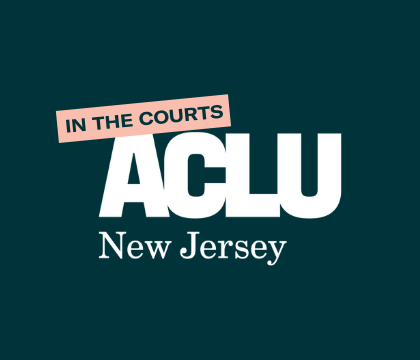State v. Paden-Battle
- Filed: 04/08/2020
- Status: Closed
- Court: New Jersey Supreme Court
- Latest Update: Dec 07, 2020

Stay Informed
Sign up to be the first to hear about how to take action.
By completing this form, I agree to receive occasional emails per the terms of the ACLU’s privacy statement.
By completing this form, I agree to receive occasional emails per the terms of the ACLU’s privacy statement.
